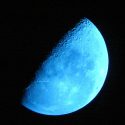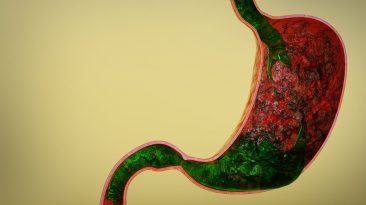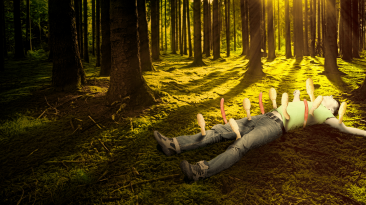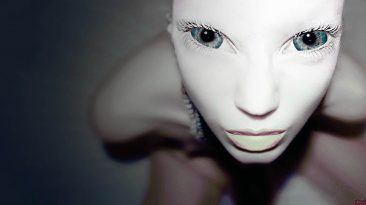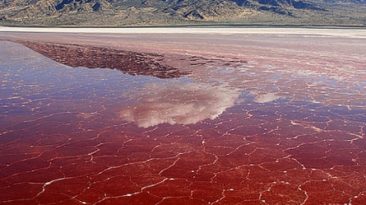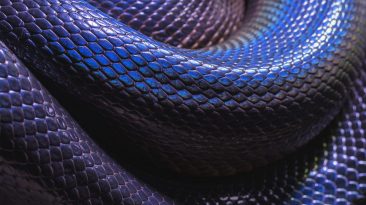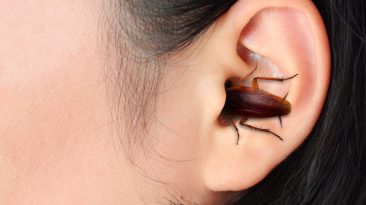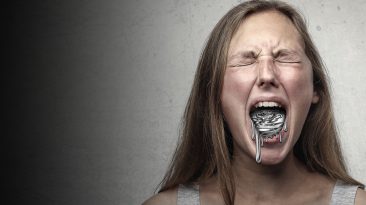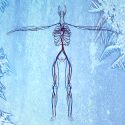How long could this sleepless “forever” last? Could you even be productive without recharging every night? When would your friends start telling you to get some rest? And what exactly would happen to your body?
How often have you needed just a few more hours to finish a project, to get ready for a date, or to enjoy your day off? If you took sleep out of your daily routine, you’d have all 24 hours of the day to do everything you never had time for. What have you got to lose?
That’s Some Next-Level Studying:
In 1964, an American student set the new documented record for staying awake without any stimulants.
He didn’t sleep for 11 days. Midterms must’ve been really stressful back in those days. But you, YOU can do better than that, right? Sure!
Other people have been reported to go long periods without sleep. A man named Thái Ngọc claimed to go forty five years without sleeping, although he also said he began to feel like a plant going without water due to his insomnia.

Ngoc reported using sleeping pills and other remedies in an attempt to fix his condition, but said that nothing work.
Al Herpin, an American man known as the ‘Man Who Never Slept’, claimed to have never slept in his lifetime. Herpin also allegedly lived to the age of ninety-four – he had given conflicting birth dates in his lifetime.
Ngoc, Herpin, and other related people may actually be a case of sleep state misperception, or people who believe themselves to be awake when they are actually sleeping.

Other reports claiming to beat Randy Gardner (the high school student who lasted eleven days) have been recorded in the decades since, but Gardner’s record was documented throughly and scientifically – other reports may have been marred by microsleeps unnoticed by the person making the attempt.
Turns out, there are plenty of good reasons to sleep. “The average person spends one third of their life lying in bed, eyes shut, snoring away. Sounds like a waste of valuable time. But not for your body.” While you sleep, your body releases hormones and repairs tissues, replacing your old cells with the new ones.
Let’s start with your body. While you sleep, your body releases hormones and repairs tissues, replacing your old cells with the new ones.
If you worked out that day, you need a good sleep to let your muscles grow and your fat burn. So what happens if you don’t sleep? Not much at first. After just 24 hours you’d feel completely fine. In fact, you’d feel better than “fine”. That’s because sleeplessness stimulates the mesolimbic pathway in your brain.
This pathway would release dopamine – and you’d feel happy and full of energy. But don’t be fooled by all that happiness – it’s not going to last long. Soon after reaching the 24-hour mark, all your reactions would slow down. Your brain would start to forget what you were doing.
Meanwhile, your brain is on fire with activity. There are different stages of sleep, where different kinds of mental maintenance are performed. In some stages of sleep, you’re regenerating neurons within the cerebral cortex, while in other stages you’re busy forming new memories and generating new synaptic connections.

How long you spend in the first stage of the sleep cycle depends upon how long you’ve been awake since your last doze. The longer you’ve been awake, the longer the brain needs to stay in the first stage of sleep, tidying up the physical brain-space. Once that’s done, you go into that delicious stage they call REM sleep.
REM (rapid eye movement) sleep is where areas of the brain used for learning and memory are stimulated. It’s during REM that anything new you’ve learned the previous day, any new skills and whatnot, gets locked into place.
Let’s see, what else? Your judgement would be affected, memory would be impaired, decision-making would be slower and less effective, and hand-eye coordination would go way down. You’d get more emotional, your senses would be impaired, and your attention would be worse.
Basically, you’d act drunk. And not a good drunk.
In fact, your cognitive impairment would be about the same as someone with a 0.10 percent blood alcohol level. How impaired is that? Well, it’s illegal to drive most places with that amount of booze in your system, so that tells you something.
This drunk-like behaviour stems from your cerebral cortex not acting the way it should because it’s gone a day without sleep.
Outwardly, you’d appear to be drunk. Wait, where were we? Right, now what about two days without sleep? At that point your body would start shutting down. It would stop metabolizing glucose properly, leaving you with no energy supply. You’d start looking very pale – like a character from the Middle Ages.
Your eyes would turn red, and then more bad news, your wrinkles would become more visible.
After a day and a half, your head might start buzzing like you were dehydrated, and you’d lose some motivation. No biggie. You might also start finding yourself working on autopilot and realizing you don’t really remember what happened for chunks of time. But hey, whatever, with a full 24 hours of life to live each day, you can afford to zone out for a chunk here and there to…whatever. We can hope that whatever you were doing or thinking was fun, but even if it wasn’t, you won’t remember it anyway, so…yeah. No biggie.
So what about two days without sleep? At this point your body would take a hint from your brain and start shutting down too. It would stop metabolizing glucose properly, leaving you with no energy supply. You’d start looking very pale – like a character from the Middle Ages. At around the 72-hour mark you’d start breaking down your own protein – your muscles.
After two days of no sleep, those chunks of lost time would get a bit more intrusive as the body begins compensating by shutting down for what’s called “microsleeps.” These are tiny little episodes that last from half a second to half a minute where you black out, and are usually followed by a period of disorientation. Your body is actually falling asleep during these quick bursts of mental absenteeism, and most of the time you won’t even notice. Whatever you were doing before, you just pick it up where you left off after the microsleep’s over.
These microsleeps are entirely out of your control, but are generally harmless. Unless, of course, you’re driving or doing something else that could prove dangerous. Even just standing up or walking could be dangerous at this point, since you’re likely to trip or fall down. So it’s probably a good idea to avoid any activity that could hurt you if you lose focus doing it.
On day three, that’s when the real fun begins. Hallucinations. Starved of REM sleep, your brain would bring all your dreams — and nightmares — to life. Again, while mostly harmless, these hallucinations could, in the wrong place at the wrong time, prove hazardous.

The Brain, The Brain, The Center of the Chain:
Remember we said you’d lack enough glucose to give your brain the energy to function? You’d get some of it from the amino acids released by your body’s proteins. So say goodbye to all that muscle mass you worked so hard to build up. Otherwise, your body would keep using up all the energy sources it could find – glucose leftovers, your muscles, fat, tissue… The temporal lobe of the cerebral cortex is where you process language and the things you hear, as well as some other sensory information like pain.
Fully rested people have very active temporal lobe when they communicate, because they’re listening and thinking and aware of what’s happening around them. But magnetic resonance imaging scans on sleep deprived subjects shows no activity within this region. It pretty much just shuts down. So they’re really not keeping up with current events.
The frontal lobe, which is on top of the temporal right at the front of the skull, also starts doing some wonky things. The frontal lobe handles things like speech and creative thinking. When you don’t sleep, you have trouble thinking of imaginative words or ideas, and tend to talk using the same simple words or clichés. And you use the same words or clichés. And using the same words you might ramble and forget what you were…um…what?
The worst part is that not only would you start acting drunk, you’d also start being stupid. Stupider, anyway. Because let’s face it, choosing to stop sleeping wasn’t the smartest option to begin with, but we’re committed now, so let’s see this through.
Part of the frontal lobe, the prefrontal cortex, is where you get your judgment, impulse control, attention, and vision. With your frontal lobe on a sleep-strike, you’d start reacting poorly to sudden changes. Without the speed or creative abilities to cope with making quick but logical decisions, you’d start doing dumb things. And even if you did have a decent idea, you’d lack the ability to act on it very well.
But will you stop? Hell no, you’ve decided to stop sleeping, and no amount of acting like a drunk idiot is going to stop you.
No Sleep ‘Til Brooklyn:
At around the 72-hour mark your body will also kick things up a notch. It’s pretty hungry by now, and remember we said you’d be unable to metabolize glucose? Well guess what important organ in your body really needs glucose to function? Yeah, your brain. So just to keep itself working, your brain will make your body start to eat itself from the inside out. Starting you’re your muscles.
The amino acids stores in the proteins of your muscles are a smorgasbord of goodness to your starving brain, so you can say goodbye to all that muscle mass you worked so hard to build up. On the high side, your body would also start chowing down on its fat stores, so there’s a bonus. Basically, anywhere there’s energy stored up in your body’s tissues is fair game at this point.
A lot of normal process would scale back or shut down, because there just wouldn’t be the resources to keep it all running. The body would decrease the amount of growth hormone produced: not getting enough sleep can literally stunt a person’s growth. If you’re prone to seizures, especially epileptic ones, you would be at a greater risk because of a reduced threshold for seizures. And your body’s white blood cell count would drop dramatically, as does the activity of the few white blood cells you have. Bye bye immune system.

After about two weeks, your immune system would be so weak, you could die from the common flu. Eventually, three weeks after your last sleep, you’d probably die from a heart attack.
If you’ve got a little extra muscle or fat on your body, you could stay alive just a little bit longer, but we don’t recommend that anyone try this at home anyway.
If it seems like you’re always tired, make sure you’re getting the prescribed 6-8 hours of sleep per night..
Unless you’re one of those total weirdos who call themselves “morning persons,” you’re among the vast majority who usually find it pretty hard to drag their sorry butts out of bed in the morning. Let’s face it, waking up sucks. So how’s this for a fix: stop sleeping altogether.
Just think about it: what if you just never went to bed? You’d never have to worry about getting up again. It’s the perfect crime! All you need to do is figure out how to keep yourself awake forever, and the possibilities would be endless, right?
This would be even better than having just a few more hours to finish a project, or to get ready for a date, or to enjoy your day off, this would be a whole extra third of your life you can spend doing things that really matter!
Screw sleep. It’s overrated anyway.
The trick is to just say no to sleep. Do it cold turkey. Don’t even bother trying to work your way into it bit by bit, an hour here, an hour there. Maybe you’ve heard about people who train their bodies to require less sleep so they only have to put in four or five hours a night. They’re liars. It doesn’t work.
The average adult human needs between six and eight hours of sleep each day in order to function properly. When you get older your body’s needs change, so you can get by with less, but if you’re functioning on less than six hours of sleep per night on a regular basis, you’re just not functioning your best.
You might think you’re fine, but that’s because you’re used to operating at a sub-optimal level. You’re really not fine. You’re sleep deprived.
And while we’re on the subject, that whole idea of sleeping for an extra few hours on weekends to make up for lost sleep during the week? Yeah, that’s not how it works either. There’s no bank of hours you can credit and debit. Really, you just need one good night of six to eight hours to get back on track.
But of course none of this will matter to you anymore, because you’re just giving up on sleep altogether. That’s it. You’re done. Cold turkey.
No more sleep, and a full 24 hours of the day to do all those things you never had time for before. Not sure you can do it? As mentioned before, in 1964, an American student set the documented record for staying awake without any stimulants.
Eleven days.
That’s right, he didn’t sleep for eleven days. Midterms must’ve been really stressful back in those days. But you, YOU can do better than that, right? Sure! You’re going to ditch sleep forever.
So how long could this sleepless “forever” last? How will it affect you? Could you even be productive without recharging every night?
When would your friends start telling you to get some rest? What will you do with all your free time now that you won’t have to waste so much of your life lying in bed for no good reason?
Sleep Is Good For Your Health:
Or is there a good reason why we sleep? As it turns out, there are plenty of good reasons.
It might seem like spending a third of your life lying in bed, eyes shut, snoring away, is a monumental waste of valuable time.
But the reality is that even though you might not be conscious, that doesn’t mean you aren’t doing very important things while you’re asleep. Sleep can help with your memory. Getting the right amount of sleep can help extend your life span. Sleep helps stop inflammation, which can lead to heart disease and other health problems. Sleeping has been found to help athletes improve their performance. It has also been found to improve grades in children. Sleep can also help people pay more attention, and help balance their weight.
If you don’t sleep enough, or don’t get the right kind of sleep…well, it’s kind of like turning off the washing machine mid-cycle. You end up with soggy clothes that are still a bit dirty. No REM means a dirty, soggy brain.
So it’s really pretty essential to your long-term growth and health that you get a good night’s sleep with a solid REM cycle every night.
To Sleep, or Not To Sleep:
But that’s ok. I’m sure you’ll be just fine without sleep.
But we would not recommend it. So grab yourself a pillow, and take a siesta.
References
- What Would Happen If You Stopped Sleeping Right Now?
- What If You Stopped Sleeping Altogether?
- The Effects of Sleep Deprivation on Brain and Behavior
- What Happens When You Don’t Sleep for Days?
- Vietnam man handles three decades without sleep
- Awake asleep: Insomniac brains that can’t switch off
- Hasn’t Slept in Ten Years
- 11 Surprising Health Benefits of Sleep
- How Long Can Humans Stay Awake?










